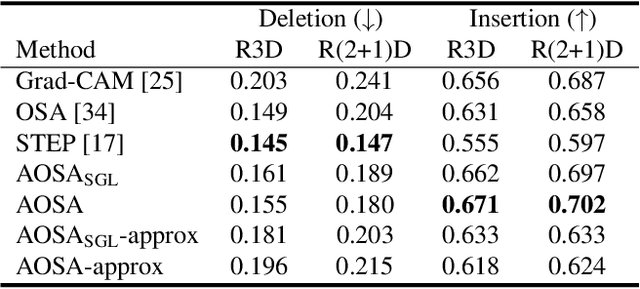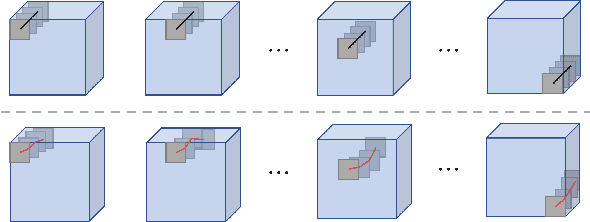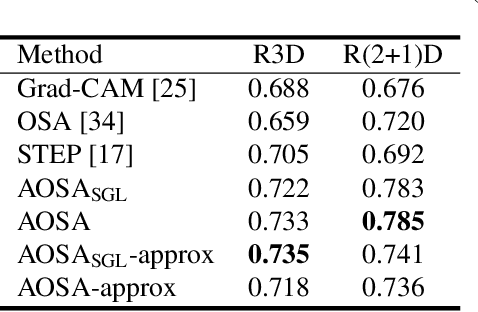Visually explaining 3D-CNN predictions for video classification with an adaptive occlusion sensitivity analysis
Paper and Code
Jul 26, 2022



This paper proposes a method for visually explaining the decision-making process of 3D convolutional neural networks (CNN) with a temporal extension of occlusion sensitivity analysis. The key idea here is to occlude a specific volume of data by a 3D mask in an input 3D temporal-spatial data space and then measure the change degree in the output score. The occluded volume data that produces a larger change degree is regarded as a more critical element for classification. However, while the occlusion sensitivity analysis is commonly used to analyze single image classification, it is not so straightforward to apply this idea to video classification as a simple fixed cuboid cannot deal with the motions. To this end, we adapt the shape of a 3D occlusion mask to complicated motions of target objects. Our flexible mask adaptation is performed by considering the temporal continuity and spatial co-occurrence of the optical flows extracted from the input video data. We further propose to approximate our method by using the first-order partial derivative of the score with respect to an input image to reduce its computational cost. We demonstrate the effectiveness of our method through various and extensive comparisons with the conventional methods in terms of the deletion/insertion metric and the pointing metric on the UCF-101. The code is available at: https://github.com/uchiyama33/AOSA.
 Add to Chrome
Add to Chrome Add to Firefox
Add to Firefox Add to Edge
Add to Edge